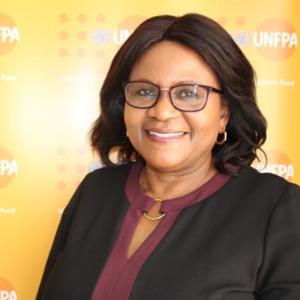- The Minister of State for Youth and Children Affairs
- Senior Government officials present here today
- Representatives from the participating districts
- Civil Society Organisations
- Adolescents and Youth present here
- Colleagues from UN agencies
- Members of the press
- Ladies and Gentlemen
Hon. Minister, Ladies and Gentlemen,
I am delighted to join you today for this National Orientation on the Uganda- UN Joint Adolescent and Youth Programme. This marks a crucial step as we accelerate the implementation of this vital initiative. On behalf of the UN system in Uganda, I offer these remarks.
We sincerely commend the Government of Uganda for its unwavering commitment to the well-being of adolescents and young people. Your enabling policies and programs are essential in creating a brighter future for this dynamic group. We also thank the representatives from the participating districts for travelling all the way from your districts to Entebbe to participate in the National Orientation Workshop.
The Uganda-UN Joint Adolescent and Youth Programme, launched in August by His Excellency President Yoweri Kaguta Museveni, signifies a shared dedication to Uganda's youth. It represents a powerful collaboration. Today's orientation brings together all stakeholders; let it serve as a reminder of the urgent need to accelerate action and deliver tangible results.
I would like to applaud a new partnership that has been forged between 13 UN agencies namely: (FAO, ILO, IOM, UNAIDS, UNCDF, UNDP, UNESCO, UNFPA, UNHCR, UNICEF, UNODC, UN Women and WHO), with the Ministry of Gender, Labor and Social Development as lead Ministry, and the National Youth Council representing the Youth, resulting in the UN Adolescent and Youth Joint Programme.
Aligned with key frameworks, such as the UN Sustainable Development Cooperation Framework 2021– 2025, the Global UN Youth Strategy, and the national frameworks and policies, the Uganda-UN Joint Adolescent and Youth Programme offers a collaborative effort to address challenges faced by Ugandan youth. It prioritizes health (including sexual and reproductive health), education, skills development, climate action, and peacebuilding. This $22 million initiative will initially target eight districts (Kotido, Moroto, Namayingo, Kampala, Kiryadongo, Lamwo, Yumbe, and Terego) from 2023-2025.
Since its launch, we've made significant progress in implementing the Uganda-UN Joint Adolescent and Youth Programme. Key achievements include:
- Two successful National Technical Working meetings led by the Permanent Secretary-MGLSD, demonstrating strong leadership and coordination
- A dedicated Secretariat has been established with representation from UN agencies, the Resident Coordinator, the National Youth Council, and the MGLSD to ensure smooth implementation
- Mapping and analysis of funding needs have been conducted to identify the gap and potential donors, enabling effective resource mobilization.
- Approval of the 2024 Joint Workplan provides a clear roadmap for action.
- Formation of the Adolescent and Youth Reference Group amplifies the voices of those we serve.
Hon Minister, ladies and gentlemen,
Uganda's young population offers immense potential. With 76% of Ugandans under the age of 30, the country is poised for significant economic growth – but only if we make intentional investments in health, education, and employment. Only then can we harness the demographic dividend.
Currently, young people face significant barriers that threaten their futures and hinder Uganda's progress towards SDGs and NDP aspirations. Shockingly, teenage pregnancy rates remain stagnant at 24% – a statistic unchanged for two decades. This robs girls, families, and the nation of potential. While policies promoting girls' return to school are welcome, stigma and lack of support remain major obstacles. Adding to this, the Ministry of Health estimates that 70% of new HIV infections among young people affect adolescent girls.
Education remains critical, yet we continue to witness declining completion and transition rates in primary and secondary schools. Urgent action is needed to address these bottlenecks and invest in skills development for youth. The ILO's 2020 'Global Survey on Youth and COVID-19' highlights the pandemic's devastating impact on youth employment, with rates soaring and working hours plummeting.
Young people are natural leaders and change-makers. They are driving climate action and peace initiatives, but we must create space for them to engage meaningfully. Investments must focus on capacity-building, youth structures, and emerging fields like green energy, where they can both combat climate change and find employment. Studies definitively show that investing in the needs of the youth – education, jobs, healthcare, and information – offers the greatest return for society as a whole.
Hon Minister, ladies and gentlemen,
We commend the Ugandan government for its leadership in supporting youth through vital programs and collaborations. We urge districts to fully embrace the Uganda-UNJAYP. Only through concrete action and local leadership can we truly make a difference in the lives of young people. The MGLSD provides an excellent example of convening key stakeholders – districts must follow suit to achieve success. With less than two years remaining in this phase, accelerated action is essential.
On behalf of the United Nations, I reaffirm our commitment to this collaboration. Together with the government, civil society, and young people themselves, we pledge our unwavering support in achieving the shared vision of the Uganda-UN Joint Programme on Adolescents and Youth.
Thank you.


















